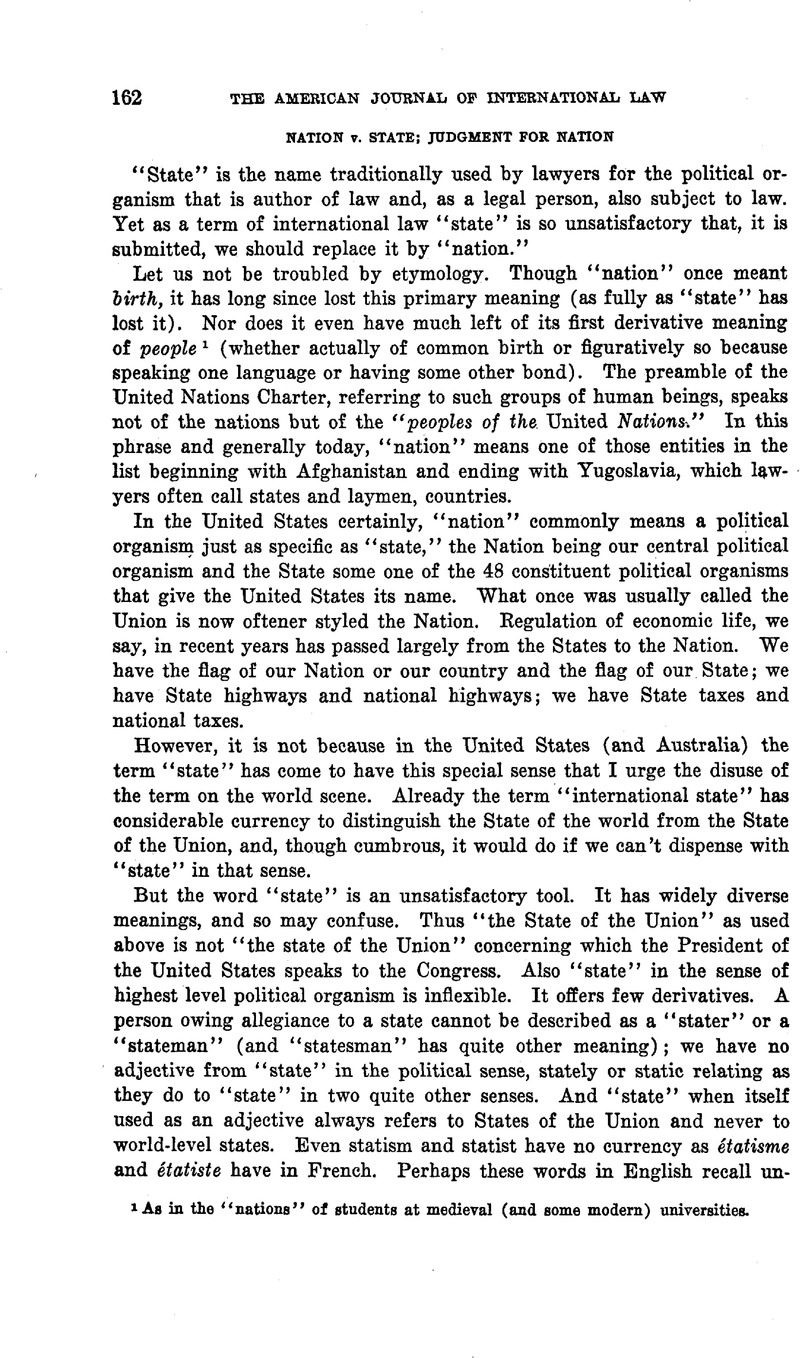No CrossRef data available.
Published online by Cambridge University Press: 20 April 2017

1 As in the “nations” of students at medieval (and some modern) universities.
2 One does not casually realize how generally these words have crept into legal use. For example, the Provisional Agreement of 1946 between the United States and the Republic of the Philippines, Dept. of State, T. I. A. S. 1539, 60 Stat. 1800, never uses the word “state.” In the preamble it speaks or “peoples.” Then the United States recognizes the Republic “as a separate self-governing nation.” Finally the “parties” agree to negotiate treaties “regulating relations between the two countries.” The General Relations Treaty of 1946 between them, T. I. A. S. 1568, 61 Stat. 1174, likewise uses both “nation” and “country,” never “state.”